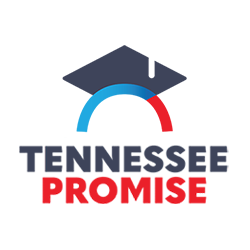Students interested in one of Volunteer State Community Colleges Health Sciences programs must follow the A.S. in Health Sciences curriculum. You must contact an advisor in your preferred area of emphasis to identify appropriate general education and elective courses for admission into your selected program. For more information about specific program deadlines and requirements, please refer to the program's information packet.
Information Sessions
 Potential applicants are encouraged to attend an information session for the Respiratory Care Program. The information session covers enrollment requirements, class schedules, and frequently asked questions. The information sessions are held once a month. Please email mallory.higginbotham@volstate.edu if you are interested in attending one of the following information sessions. All information sessions will be held virtually through Zoom.
Potential applicants are encouraged to attend an information session for the Respiratory Care Program. The information session covers enrollment requirements, class schedules, and frequently asked questions. The information sessions are held once a month. Please email mallory.higginbotham@volstate.edu if you are interested in attending one of the following information sessions. All information sessions will be held virtually through Zoom.
- Friday, January 16, 2026 at 10:00 a.m.
- Friday, February 27, 2026 at 10:00 a.m.
- Friday, March 27, 2026 at 10:00 a.m.
- Friday, April 24, 2026 at 10:00 a.m.
What Does A Registered Respiratory Therapist Do?
Registered Respiratory Therapist are integral members of the healthcare team who work under the supervision of a physician to access, treat, and manage patients of all ages who have cardiopulmonary-related conditions.
RRTs Provide Treatments that Could Include
- Obtaining blood specimens for gas analysis, and determining levels of oxygen, carbon dioxide, and other gases.
- Interpreting data obtained from these specimens to evaluate and make changes with life support systems, oxygen or nitric oxide, or heliox gas administrations.
- Diagnostic procedures to calculate impaired lung functions.
- Recommend and administer aerosolized antibiotics, antiviral and bronchodilator therapies.
- Metabolic testing to assess the cardiopulmonary systems.
- Home therapeutics for chronically ill patients or those suffering from respiratory-related sleep disorders.
- Monitoring and managing therapy that will help a patient recover lung function.
- Administering medications in aerosol form to help alleviate breathing problems and to help prevent respiratory infections.
- Monitoring equipment and patient responses to therapy.
- Conducting rehabilitation activities, such as low-impact aerobic exercise classes, to help patients who suffer from chronic lung problems.
- Maintaining a patient's artificial airway, one that may be in place to help the patient who can't breathe through normal means.
- Conducting smoking cessation programs for both hospital patients and others in the community who want to kick the tobacco habit.
Accreditation
The Volunteer State Community College, Respiratory Care Technology Program (CoARC Program Number 200399) located at the main campus in Gallatin, TN is approved to award an Associate Degree of Applied Science (A.A.S.) upon successful completion of the program. The program is accredited by the Commission on Accreditation for Respiratory Care.
Program Goals
The overall goal of the program is to prepare graduates with demonstrated competence in the cognitive (knowledge), psychomotor (skills), and affective (behavior) learning domains of respiratory care practice as performed by the registered respiratory therapist (RRT).
Forms & Resources
Program Outcomes Data
CoARC accredits respiratory therapy education programs in the United States. To achieve this end, it utilizes an ‘outcomes based’ process. Programmatic outcomes are performance indicators that reflect the extent to which the educational goals of the program are achieved and by which program effectiveness is documented. View the CoARC’s outcomes webpage.
Frequently Asked Questions
Respiratory care is a health care profession that deals with the prevention, diagnosis, treatment, and rehabilitation of lung disorders. Respiratory therapists work under the direction of physicians to care for patients who have trouble breathing—for example, from a chronic respiratory disease, such as asthma or emphysema. Their patients range from premature infants with undeveloped lungs to elderly patients who have diseased lungs. They also provide emergency care to patients suffering from heart attacks, drowning, or shock. For additional information go to http://www.aarc.org/careers/what-is-an-rt/.
Yes. Highly qualified candidates will be offered the opportunity to interview with the Respiratory Care Therapist selection committee. Invited students will be notified of their opportunities after the application deadline.
Shadowing is perhaps the best way for an applicant to personally experience and reflect upon the career of a Respiratory Therapist however, it is not required for admission into the program. Visit professional websites to obtain additional information about the field of respiratory care.
All must be completed with the exception of BIOL 2020, Human Anatomy and Physiology II, which can be completed during the program.
Yes. You can apply, but you will need to complete the courses with the required grades before you can be considered for acceptance.
No, there is not an application fee.
No. This is a full-time program of study.
No, the program is not offered online. There are some online components throughout the program therefore internet access is required.
No, you are not too old. Non-traditional students have been very successful in the respiratory care program and profession.
A background check and drug screen is not required for admission into the Respiratory Care Program at Vol State. However, a background check and drug screen is required for clinical onboarding as part of the clinical affiliates requirements. These requirements are set by the clinical sites, not by Vol State. If a student is accepted into the program, the Director of Clinical Education will provide additional details and instructions regarding the background check and drug screen process.
Transcripts from other institutions will be evaluated by a Transcript Analyst after they have been forwarded to the Records and Registration Office. The program will accept transfer credit that has been approved by the analyst. For more information go to https://www.volstate.edu/records/transfer.
It is rare for a student with the minimum grade point average to get accepted since the program is competitive.
The courses are listed in this information packet and on the college’s website at https://www.volstate.edu/academics/health-sciences/respiratorycare. You can also sign in to DegreeWorks at https://degreeworks.volstate.edu/Dashboard/login.html to view the courses you need for the program.
Yes, the state of Tennessee requires all respiratory therapists to obtain a license from the Board of Respiratory Care in order to work. After completion of the program, graduates are eligible for licensing in all states that require a license.
The Certified Respiratory Therapist (CRT) is the entry level credential for the field of respiratory care. Everyone entering the field must at minimum be a certified respiratory therapist. The CRT credential is obtained by passing the TMC (Therapist Multiple Choice) examination following graduation from program. To obtain the Registered Respiratory Therapist (RRT) credential, students must pass the TMC at the high cut threshold which allows them to sit for the second exam, clinical simulations. Passing the clinical simulation exam (CSE) will secure the RRT credential. Both credentials are awarded by the National Board for Respiratory Care (NBRC).
It will take five total semesters including the general education courses. The general education courses can be completed in one semester. The length of the program is four semesters.
The program is very rigorous and requires a full-time commitment. Most students who work full-time while in the program are not successful. Some students are able to decrease their work hours in order to concentrate on the program. Potential students must take into consideration the time needed to study and complete assignments when considering work schedules. Students must earn at least a final grade of “C” or better to continue in the program.
Yes, information will be provided to you for programs at local universities.
Yes, you are required to take and pass the national entry-level examination upon graduation from the program to obtain the CRT credential. You also must within 3 years take the national Registry Examination subsequent to passing the entry-level examination. All examinations are computer-based.
Yes, you can apply for financial aid at https://www.volstate.edu/financialaid/apply
Go to https://www.volstate.edu/financialaid/scholarships for information about scholarships.
Yes, students are required to perform community service throughout the program. Details will be provided after acceptance into the program.
The director of clinical education assigns the students to hospital rotations. Clinical sites are based on the educational needs of the student, the census of the facility, and student preference. Clinical sites requested by students are not guaranteed. Attendance of rotations at several hospitals is required in order to acquire a complete and well-rounded clinical education. Different points in the program require different types of experiences, so the number and types of clinical rotations available will vary as well. There will also be rotations in respiratory care subspecialties, such as pulmonary function testing, pulmonary rehabilitation, and many more.
You may provide therapy to neonatal, pediatric, adolescent, and adult patients.
It is the student’s responsibility to secure and bear the expense of reliable transportation to and from all clinical sites.
Students are scheduled to be with the director of clinical education, clinical preceptors employed by the college, and respiratory therapists at various locations depending on the educational needs of the students.
Most hospitals in Middle Tennessee require 12-hour work shifts. Respiratory therapists may work on day or night-shift. Weekend and holiday staffing is required based on the policy of the facility. Keep in mind that hospitals never close, therefore, staffing is needed 24 hours a day seven days a week. Some hospital have per diem positions where employees work as needed instead of full-time. For those employed in clinics, rehabilitation units, or home care settings, regular day hours are 7:00 AM to 3:00 PM or 8:00 AM to 4:00 PM.
All rotations are during day shift. There is a possibility for an occasional weekend clinical rotation at the discretion of the director of clinical education.



